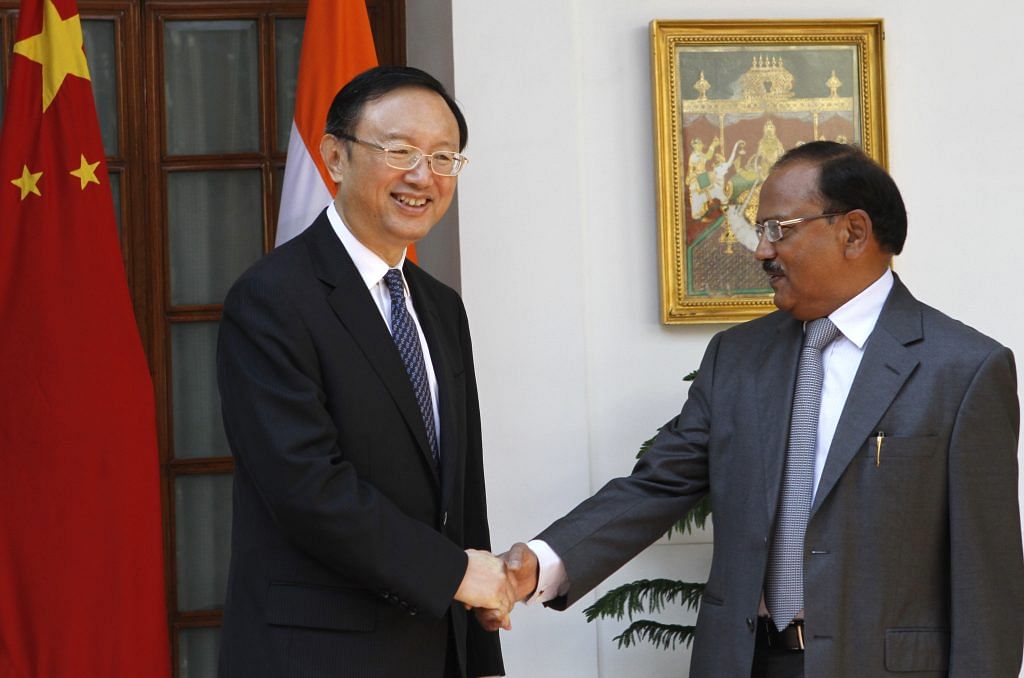ThePrint asks:
Is it possible to break the India-China border talks deadlock?
India’s National Security Adviser Ajit Doval and China’s State Councillor, Yang Jiechi, special representatives of India and China respectively on the boundary question, are meeting for 20th round of formal talks on the border. The last round of special representatives meet was held in Beijing in April last year and this one comes four months after the 73-day-long military standoff between the two countries in Doklam in the Sikkim sector this summer.
But given the history of boundary negotiations, nothing much should be expected. China seems to have no inclination to move on the boundary question. The result might be that other aspects of the bilateral relationship will be discussed. Chinese foreign ministry spokesperson has already suggested that this special representatives meeting is not only a high-level channel for the border issue discussion but also the platform for strategic communication. And there is no dearth of issues on the table as the Sino-India ties are passing through a phase of serious downturn.
Any bilateral engagement aimed at achieving a sustainable outcome is a function of give and take. The only ‘positive’ signalling from Beijing on issues of concern to India has been a suggestion that China might be open to renaming of the China-Pakistan Economic Corridor if it makes India join the Belt and Road Initiative. Even this amounts to tinkering with the superficialities rather than addressing the substance of Indian concerns.
Here are other sharp perspectives on the question:
Lt Gen. (Retd) S.L. Narasimhan, member, National Security Advisory Board
Ankit Panda, senior editor, The Diplomat
On Doklam, Chinese foreign minister Wang Yi credited Beijing’s handling of what he had called the “trespass” with “restraint”. He also underlined that “lessons should be learned and (it) should not happen again.” The implication of his remarks was very clear that Doklam was India’s fault and it should learn appropriate lessons. And there have been suggestions that Beijing tried to delink the discussions on Doklam from the larger boundary talks which New Delhi had to rebuff.
The wider reality confronting Sino-Indian relations is that the balance of power is turning in favour of China. The mechanism of special representatives on the boundary questions was set up in 2003 but today China views itself as a global power challenging American pre-dominance of the global order. This strategic reality is shaping its behaviour towards India whereby it feels no real need to acknowledge Indian security concerns and India’s rise in the global order. It can, therefore, be safely assumed that much like the past, the latest round of boundary talks will yield little.
Harsh V. Pant is Professor of International Relations, King’s College London and Head of Strategic Studies, Observer Research Foundation, New Delhi.
